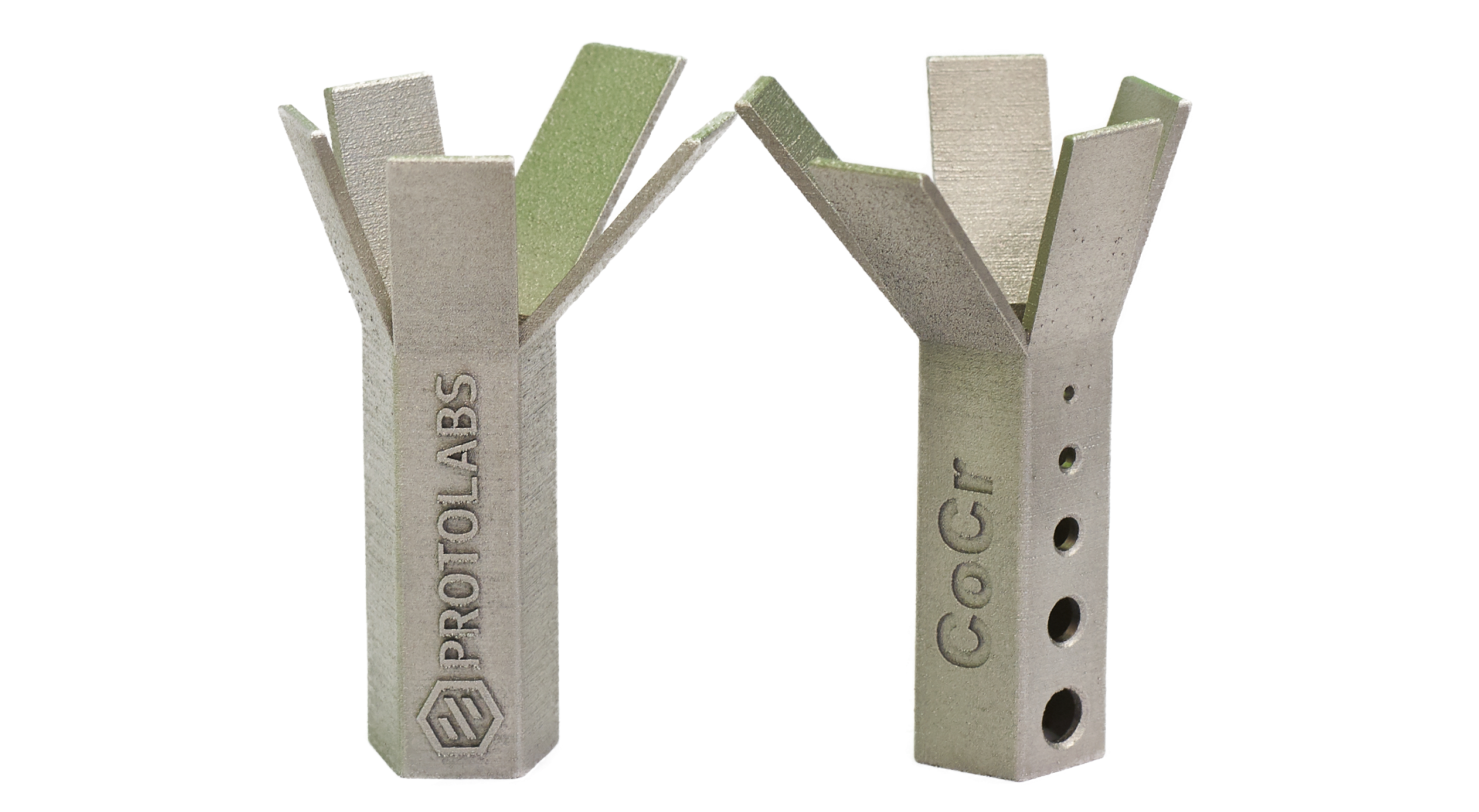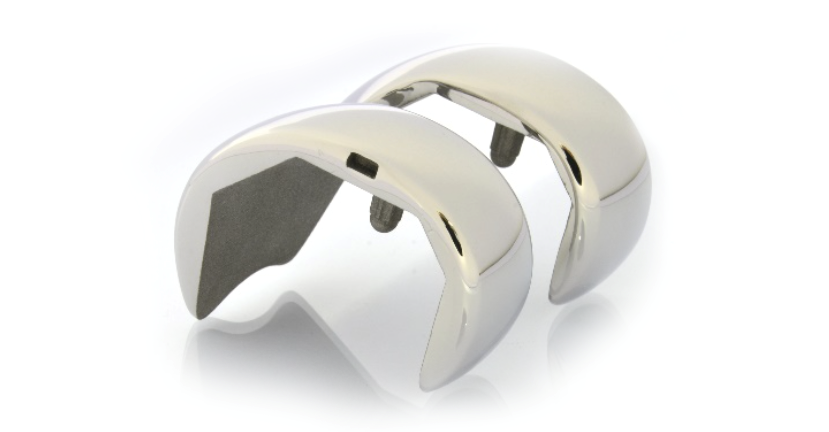Digital prototyping specialist Protolabs has launched a new 3D printing material for its metal laser sintering process – cobalt chrome superalloy. The UK-based company believes the heat, wear, and corrosion resistant material will disrupt a number of industries including oil and gas where customized cobalt chrome parts were not previously possible.
Andrea Landoni, 3D printing product manager for Protolabs, stated: “Cobalt chrome is one of the toughest materials known and can be polished to an extremely smooth surface. The advantage of 3D printing it is that we can produce any shape that you want, whether it is for an unusual geometry or to save weight.”

Laser sintering cobalt chrome
Cobalt chrome is known for its high corrosion resistance, with a low nickel content providing excellent biocompatibility for medical and dental applications. It can operate in temperatures up to 600oC due its resistance to creep. The high strength to weight ratio also makes it an ideal candidate for aerospace applications.
The new material will be used with Protolabs’ direct metal laser sintering service, which heats up metal alloy powder with a high power laser to fuse it into solid layers. The layers are recoated with powder and the process is repeated until a 3D shape is formed. The resolution of the parts produced is extremely fine, with feature sizes and wall thicknesses down to a millimeter. Protolabs claims to be able to produce complex parts in as little as a day with the process, giving them the self-proclaimed title of “fastest digital manufacturing company in the world”.
According to Landoni, CNC machining cobalt chrome is actually very difficult due to its high wear resistance. On top of this, the geometry and structure of the parts produced tend to be limited when using subtractive manufacturing. For companies looking to rapidly prototype and test a new part for both form and function, 3D printing with the new cobalt chrome powder may be the way to go.
Landoni concludes: “The production process is rapid, from uploading the design into our Protoquotes software you will typically get a quote back within a few hours. Once approved, the part can then be produced for shipping in as little as a day. When you contrast this to the several days or even weeks quoted by other suppliers, then you can dramatically shorten your development and product lead times.”

In the last couple of months alone, Protolabs has made a number of major moves to expand its 3D printing capabilities. The company recently announced that it would be adding a set of GE Additive’s X-Line 2000R large format 3D printers to its already extensive portfolio of machines by late summer of 2020. Protolabs also invested £10.5m in the construction of a new 3D printing facility in Putzbrunn, Germany. The 5000 square meter factory is expected to increase the company’s production capacity by an impressive 50%.
The nominations for the 2020 3D Printing Industry Awards are now open. Who do you think should make the shortlists for this year’s show? Have your say now.
Subscribe to the 3D Printing Industry newsletter for the latest news in additive manufacturing. You can also stay connected by following us on Twitter and liking us on Facebook.
Looking for a career in additive manufacturing? Visit 3D Printing Jobs for a selection of roles in the industry.
Featured image shows DMLS parts by Protolabs. Photo via Protolabs.



